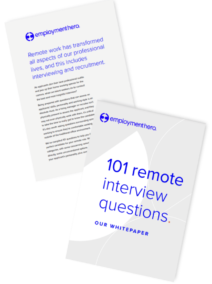Key Facts
| Employment Terms | |
| Timezone | GMT +12, subject to daylight savings in summer |
| Currency | New Zealand dollar (NZD) |
| Capital city | Wellington |
| Official language | English, Māori, NZ sign language |
| Ease of doing business | Very friendly to business (#1 out of 190 countries) |
| Minimum wage | NZD 21.20 |
| Estimated employer cost | 4.0% |
| Employer retirement contribution: Kiwisaver | KiwiSaver is a voluntary retirement savings scheme. If an employee chooses not to opt out, they must contribute a minimum of 3% up to a maximum of 10% which is deducted from their salary. Where an employee is enrolled in Kiwisaver, employers must provide a contribution of 3% in addition to the employee’s total compensation. |
About New Zealand
New Zealand is a developed nation with a GDP of $226 billion and a population of over 5 million people. It is well known for ranking highly in international comparisons of national performance such as quality of life, education and economic freedom. New Zealand consistently ranks high on ease of doing business, and it’s equally becoming a popular destination with digital nomads and remote workers.
New Zealand’s employment landscape is governed by legislation and common law which covers all aspects of the employment relationship and employment contract. The statutory framework imposes a mutual duty of good faith in exercising all employment rights and obligations.
Employment in New Zealand
Working Hours
- The standard full-time working hours are 8 hours per day at 40 hours per week.
Overtime
- There are no legal requirements to pay overtime for additional hours worked. However, overtime hours and pay should be stipulated in the employment agreement and it is typical for many employees to receive overtime payments.
Probationary Period
- Employers determine the length of probation, which varies depending on the nature of the business and the role. Probation periods are typically three or six months.
Payroll Cycle
- There are no legal requirements for when an employee needs to be paid but employees are typically paid fortnightly or monthly.
Main Types of Leave in New Zealand
Annual Leave
Employees are entitled to 4 weeks of paid annual leave per 12 months worked.
Sick Leave
Employees are entitled to 10 days.
Parental Leave
There are various types of parental leave both paid and unpaid, dependent on the amount of time worked (6 months or 12 months). Parental leave can apply for a newborn child or for adoption purposes. Generally, employees are entitled to 26 weeks of paid primary carer leave for up to $621.76 per week.*
Types of parental leave: Primary carer leave, special leave, partner’s leave, extended leave and negotiated carer leave
Eligibility:
- 1 week for employees who have worked continuously for 6 months (for an average of 10 hours per week).
- 2 weeks for employees who have worked continuously for 12 months (for an average of 10 hours per week).
Employment Termination
Notice Period
Notice periods are typically set between 2 – 4 weeks.
If the employment agreement doesn’t have a notice period, then fair and reasonable notice must be given taking into account the type of job and length of service.
Termination
It is imperative that you seek professional advice before taking any action on termination*
An employer must provide notice when ending an employee’s employment (with the exception of dismissal due to serious misconduct).
In all cases, the employer must have a good reason for the dismissal and follow a fair process.
Severance
Severance payments include the hours worked until the final day and any unused annual leave or days in lieu payments.
Additional payments are either specified in the employment agreement or negotiated as a part of the leaving package.
Disclaimer: The information on this webpage is current as at 19 September 2022, and has been prepared by Employment Hero Pty Ltd (ABN 11 160 047 709) and its related bodies corporate (Employment Hero). The views expressed on this webpage are general information only, are provided in good faith to assist employers and their employees, and should not be relied on as professional advice. The information is based on data supplied by third parties. While such data is believed to be accurate, it has not been independently verified and no warranties are given that it is complete, accurate, up to date or fit for the purpose for which it is required. Employment Hero does not accept responsibility for any inaccuracy in such data and is not liable for any loss or damages arising either directly or indirectly as a result of reliance on, use of or inability to use any information provided on this webpage. You should undertake your own research and to seek professional advice before making any decisions or relying on the information displayed here.

Sorted.
Hiring an employee in New Zealand is no easy task. Especially, if you are overseas, and lack the knowledge of employment law and regulations relating to international HR compliance, payroll, benefits and taxes.
Employment Hero has a local entity in New Zealand and we fully understand all the ins and outs of hiring in the local market, so we can help you throughout the step-by-step process.

Decoded.
New Zealand has laws that help keep workplaces fair. You should be aware of the rules and what your employer rights and responsibilities are. Under New Zealand employment law, employers and employees both have rights and responsibilities. Do you know your responsibilities?

Easily.
Employment Hero’s Global Teams service takes care of the complex admin; international employment legislation, local tax and pension minimums, insurance obligations and more. Hiring incredible talent from anywhere in the world has never been easier.
over the past year


Related Resources


Hire Remotely
Global Teams is the best-in-class global (EOR) Employer of Record that enables you to hire based on skill, not location. Whether you're expanding into new markets or struggling to fill open roles, we connect the best talent with the best employers, legally and ethically.


